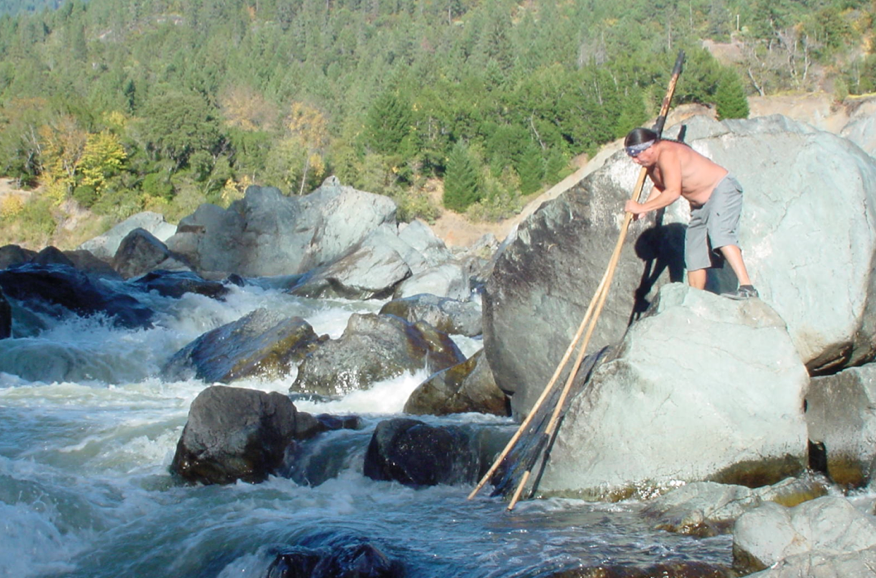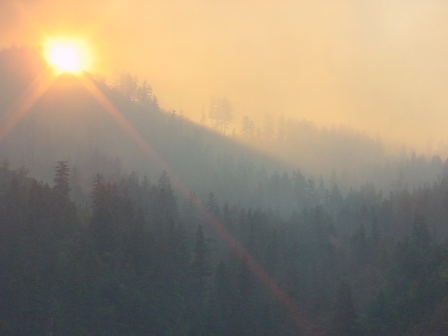“We are trying to get back to an intact world. Climate change can be a vehicle for that because of the awareness it brings to so many about limitations in the current management practices. We believe there is genuine interest in Karuk perspectives about how to care for the land, we offer these explanations in the hopes that this is true.”
-Ron Reed, Cultural Biologist and Traditional Dipnet Fisherman, Karuk Tribe

Ron Reed dip net fishing at Ishi Pishi Falls. Photo: Karuk Tribe
The Karuk Tribe is a federally recognized Indian Tribe (73 Fed. Reg. 18,535, 18, 544 (April 4, 2008)) occupying aboriginal lands along the middle course of the Klamath and Salmon Rivers in Northern California. The Tribe’s Aboriginal Territory has been previously mapped and includes an estimated 1.48 million acres, within the Klamath River Basin. This Territory is the land base that was utilized in the process of receiving a determination of Tribal recognition.
The Tribe continues to exercise jurisdiction over tribal lands and territories. Nearly all of The Karuk Aboriginal Territory is located concurrent to lands administered by the USDA Forest Service’s Klamath and Six Rivers National Forests.
Climate change is the most serious ecological problem our world has faced. Climate change evokes an urgent need to rethink many aspects of western social, economic and political systems from the organization of energy around fossil fuels, to the sustainability of cultural values of excessive consumption, and the relevance of epistemologies that presume a separation of the social and natural worlds.

Smokey summer sunset on the Klamath River. Photo: Will Harling
Western land management practices from fire suppression to single species management and extractive emphases have also been called into question. In this moment of crisis new possibilities for cooperation across worldviews, scales and jurisdictions have emerged. Agencies are trying to work together to think about climate change – a problem that does not follow bureaucratic lines. Government agencies, the western scientific community and non-profit land mangers alike have begun to point to the importance of returning to traditional management practices (Leonetti 2010).
Climate change poses a threat not only to the Klamath ecosystem, but to Karuk culture which is intimately intertwined with the presence, use and management of cultural use species (Karuk Tribe 2010, Lake et al 2010, Norgaard 2005). In the context of climate change, Karuk tribal knowledge and management principles can be utilized to protect public as well as tribal trust[1] resources (Karuk Tribe 2012). The Karuk Tribe is actively involved in climate planning. This website contains information about the Tribe’s current Climate Vulnerability Assessment and two reports on Traditional Ecological Knowledge and Knowledge Sovereignty.